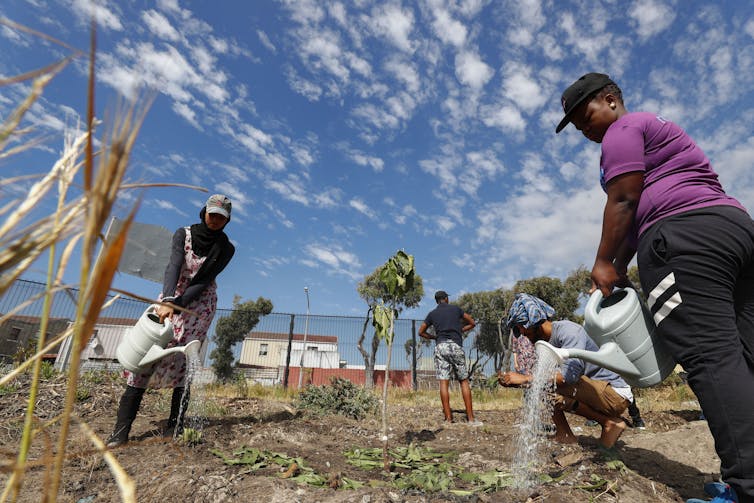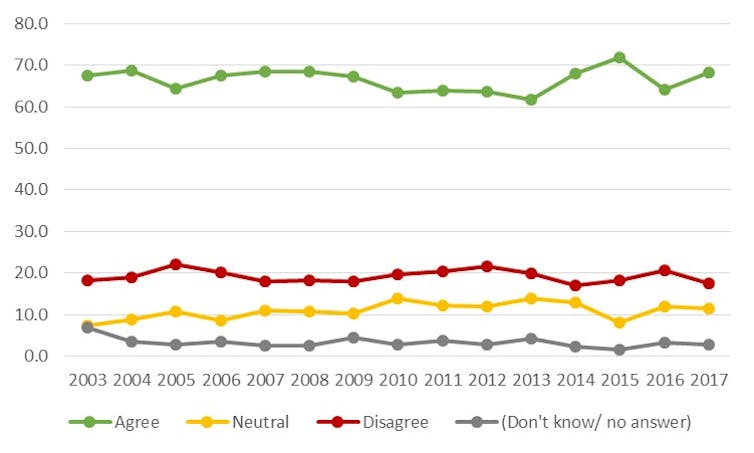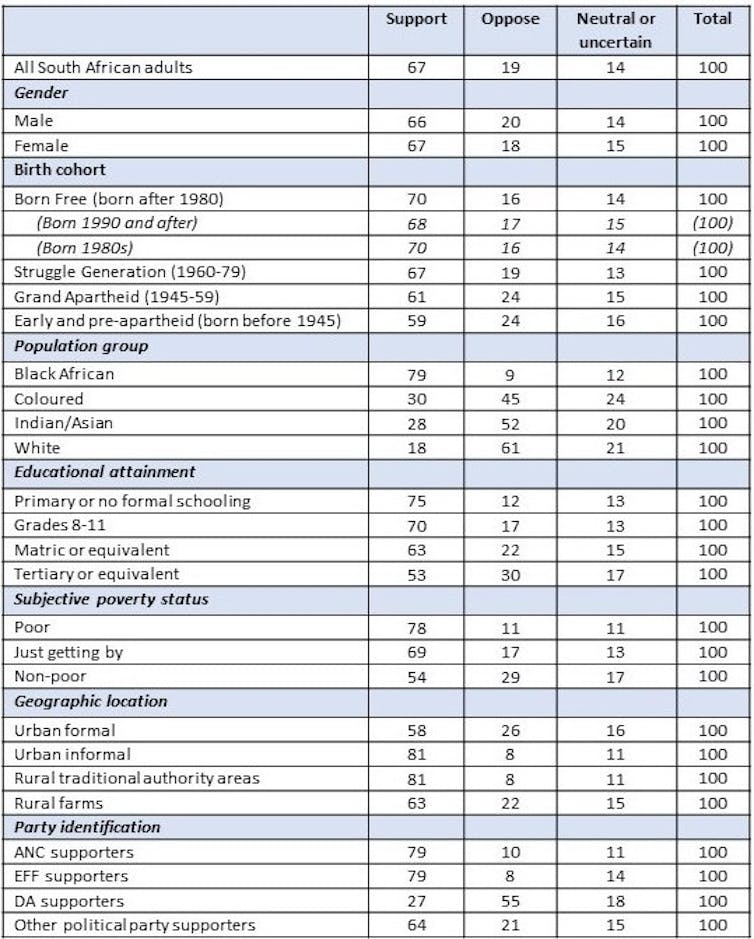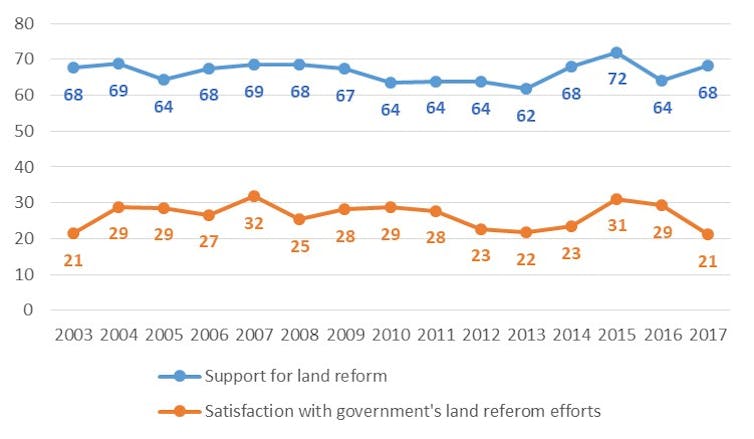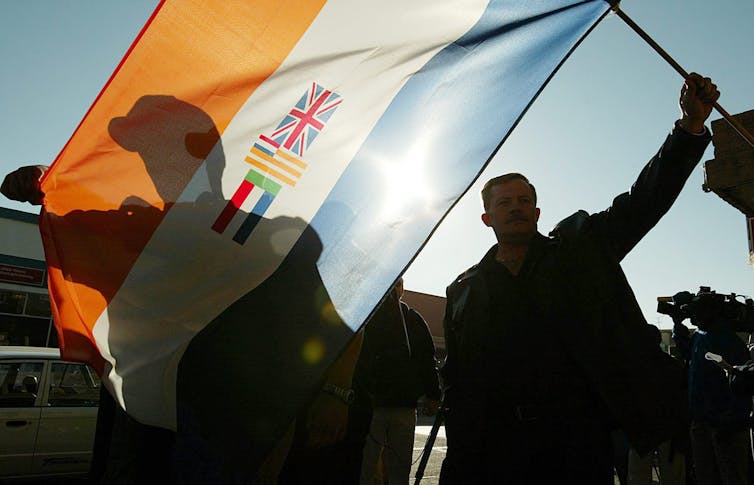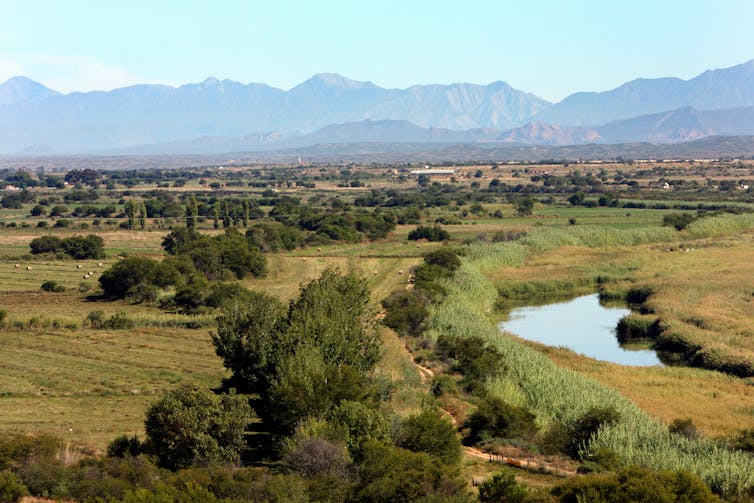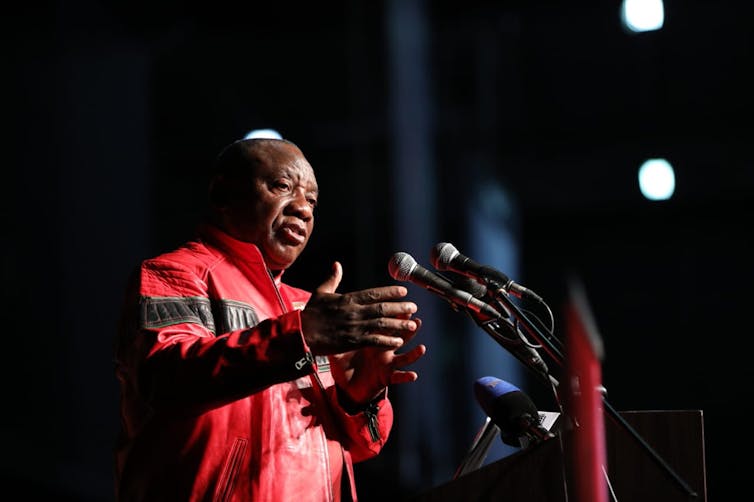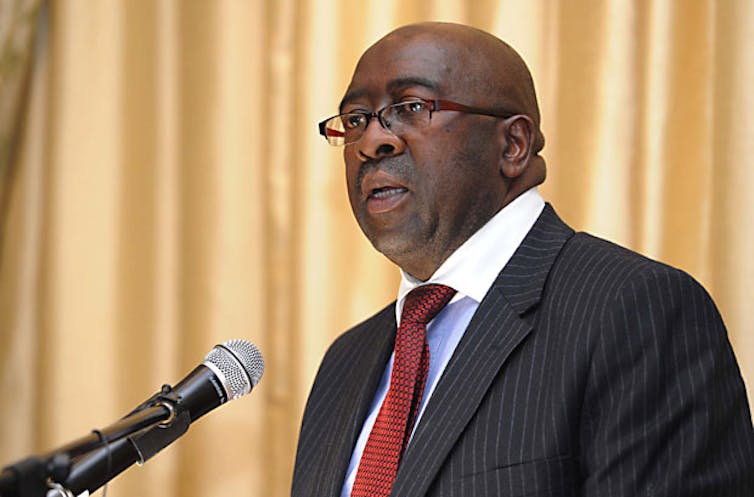
Nhlanhla Nene’s departure means that South Africa has had six finance ministers in four years.
GCIS
South Africa’s once-lauded, lately beleaguered Finance Minister, Nhlanhla Nene, has had his resignation accepted by President Cyril Ramaphosa. His successor, Tito Mboweni, becomes the country’s sixth finance minister in four years.
The President is desperately trying to dig South Africa out of an unholy mess created by his predecessor Jacob Zuma and his multiple cronies in and out of the governing African National Congress (ANC). The particularly odious Gupta family have loomed large in what a succession of research projects, commissions of inquiry, books and investigative journalism projects, have labelled state capture.
Nene was formerly regarded as “clean”, having been fired by former President Zuma for refusing to fund his more ludicrous rent-seeking projects. He was replaced by Des van Rooyen for a weekend, and then left in the cold while Pravin Gordhan became Finance Minister (before in turn being fired by Zuma). Nene was rehabilitated by Ramaphosa – who defeated the entire Zuma strategy by winning the ANC (and then national) presidency. Nene’s reinstatement as Minister of Finance was widely regarded as both politically astute and market-friendly.
But then Nene dropped two bombshells: one, that he had met the Gupta brothers at their homes and offices between 2010 and 2014, but had not shared this with Ramaphosa; two, that he had refused to sign off a nuclear deal with Russia that would have simply broken the country financially for decades to come.
And now he is gone.
Did anyone pause to reflect on the fact that after a decade of impunity, this was an act of decency and moral courage? Ignore the party colours, and look at the human being. That is clearly a test all South African politicians failed abysmally. If they have a conscience they clearly forgot to dust it off and use it.
Widespread guilt
Almost by definition, anyone who is found to have past dealings with the Guptas – themselves now safely ensconced in mansions abroad – is unclean. And by definition that includes huge swathes of the political and business classes, whom the Guptas seem to have variously seduced, corrupted, cajoled, threatened or by-passed, depending on the strength of character at stake.
The brilliance of their state capture project – laid out recently by the investigative journalists as well as various academics – is a roll-call of virtually every senior political figure in South Africa, alongside many business elites.
Some stood up – but a great many folded, seduced by cash or a crass Sun City family wedding invitation or rotten contracts.
Many are in parliament, some are in civil society, others in the private sector – including the consultancy firm KPMG, and UK-based now defunct PR company Bell Pottinger – and elsewhere. Not all are sitting on ANC benches. Perhaps that is why the President had no option but to remove Nene. Politically, the liability was too great as an election approaches – national elections are due next year – and none are so shrill as those with something to hide.
Nene went to the Zondo Commission into state capture and ‘fessed up. Yes, he had met the Guptas. No, he had not taken bribes (well, he would say that, right?). Yes, he had been put under immense pressure to sign off on the nuclear deal which would have opened South Africa’ coffers to looters. Yes, he refused to sign, and was fired.
Remarkably, he had not told Ramaphosa about the earlier meetings with the Guptas. But, he took responsibility – unlike the lies and bluster of others caught in the act. Nene said to South Africa:
In return for the trust and faith that you have placed on me, I owe you conduct as a public office bearer that is beyond reproach. But I am human too, I do make mistakes, including those of poor judgement.
This was followed by his offer to resign. This is accountability and decency.
Lacking empathy
In any version of the world, this was a man seeking an honourable redemption. He acknowledged his own mistakes, sought forgiveness, and asked to be relieved of the trappings of office for which so many continue to drool and slobber.
Were there questions to be asked? Absolutely.
But what did he get in return? The Economic Freedom Fighters (EFF), whose leadership has repeatedly been accused of corruption, leapt to the offence, claiming Nene was “corrupt as hell” and promising to release more compromising details – which are yet to appear. The opposition Democratic Alliance (DA), desperately seeking the front foot it has lost since Ramaphosa’s ascendancy, demanded Nene’s axing and wanted other possible conflicts of interest investigated.
Empathy is the ability to understand or feel what another person is experiencing from within their frame of reference. In simple terms, to put yourself in their shoes. It is singularly lacking in politics – from Trump mocking abuse survivors to South Africa today. Shout down the other side, win by volume and crassness, see honesty as weakness, but above all win – nothing else seems to matter.
Not one politician had the decency to say ‘that was a decent thing to do.’ The lack of empathy was deafening. A lack of empathy is part of narcissistic personality disorder – an inability or refusal to identify with the feelings of others. This is a rather neat description of politicians, confirmed repeatedly.
If politicians see only personal advantage, especially from the ‘weakness’ of others – weakness defined here as honesty, seeking forgiveness, repentance – then the future is bleak.
But to all those self-serving, smug TV chasing politicians and others, whose own meetings with the Guptas, or other corrupt activities, have yet to come to light, remember one aphorism: people who live in glass houses shouldn’t throw stones.
David Everatt, Head of Wits School of Governance, University of the Witwatersrand
This article is republished from The Conversation under a Creative Commons license.
